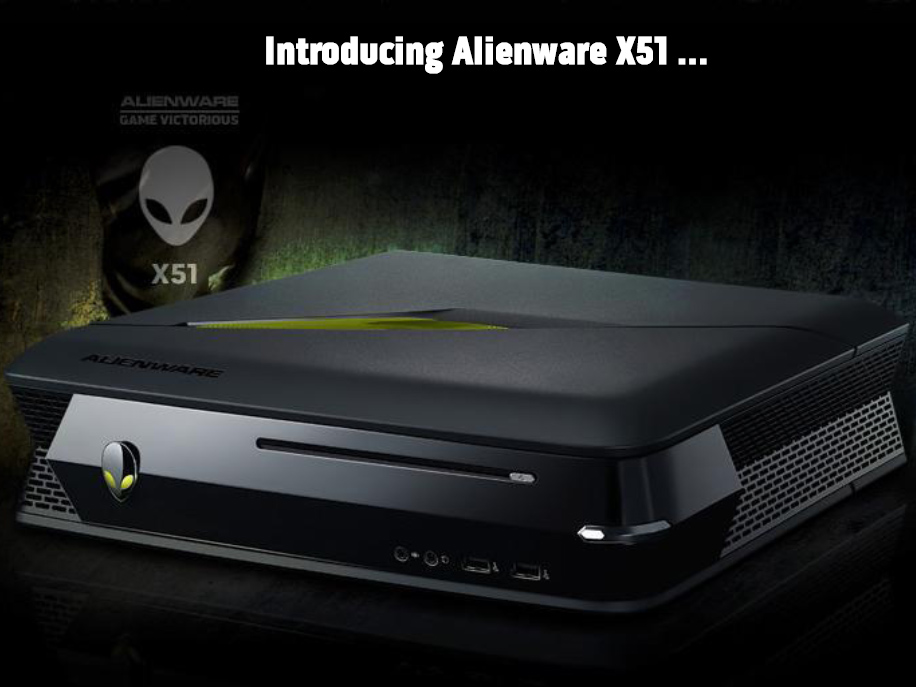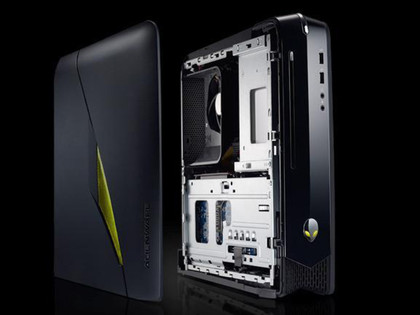Alienware explains move to small form-factor
PC gaming for those with limited time and space

Alienware's senior product consultant has explained to TechRadar the reasoning behind offering a small-form factored gaming PC in the Alienware X51.
Dell-owned Alienware has established its reputation with high-end products, appealing to hard-core gamers with enough money to fork out for the latest kit.
However, with desktop computing on the wane, Alienware is keen to tap into a category of gamers that do not have the space or justification for a huge, powerful gaming machine.
Decline
Eoin Leyden, Alienware's senior product consultant told TechRadar: "Desktop as a category has been declining, and the only shining light has been small and ultra-small form factor PCs.
"These PCs have been predominantly digital hubs for the living room that have no regard for the gaming population at all.

"Some of that has been partly driven by price, but also the heat generated by gaming systems is a problem."
Alienware's X51 has a form-factor similar to that of an Xbox, but offers far superior specs even at its lowest price point – offering up Intel's Core i3-2120 processor and 1GB Nvidia GeForce GT 545 graphics along with 4GB DDR3 RAM.
Sign up for breaking news, reviews, opinion, top tech deals, and more.
"The performance speaks for itself," adds Leyden. "The compromise is within the form-factor.
"You can't do SLI graphics because you couldn't manage the heat. You could if you made it bigger, but that defies the entire point.
"I don't personally believe you can offer a system that offers a better gaming performance within that form-factor or even that there is anything close."
"I asked one of our designers what cool thing I should be telling people in the briefings and he said, 'Tell them that we managed to make it all fit in'!"
Sub-core game
Leyden believes that the division between mid-level and hardcore gaming is increasingly blurred and that a generation of gamers still want to play the latest titles but only have limited time.
"From casual to pro-gamer the difference is the amount of leisure time people devote to gaming.
"At one end of the scale you have 'all of my leisure time is taken up by gaming' and at the further you move over you soon hit the 'I get two hours of Call of Duty or Skyrim or do I go and play golf?'
"Gaming is in their heads but not necessarily the number one thing that drives them. If [that demographic] is going to buy a small PC they will want it to be able to play games.
"If they go into a shop and there is two small form factor PCs but one is fully tripped out for games, I'd say 'absolutely – it's a great investment'.
"Within the confines of the form-factor we have totally developed an Alienware product. We didn't go out going to hit a price point but this is a PC that can do all of the things a desktop computer ought to do, but for that extra bit of money it can also play the latest games."
Another key factor is that the standard components mean that the user can upgrade their own PC.
"We did talk about locking it down, but we decided that would not be what we want to do with Alienware desktops," concludes Leyden.

Patrick Goss is the ex-Editor in Chief of TechRadar. Patrick was a passionate and experienced journalist, and he has been lucky enough to work on some of the finest online properties on the planet, building audiences everywhere and establishing himself at the forefront of digital content. After a long stint as the boss at TechRadar, Patrick has now moved on to a role with Apple, where he is the Managing Editor for the App Store in the UK.